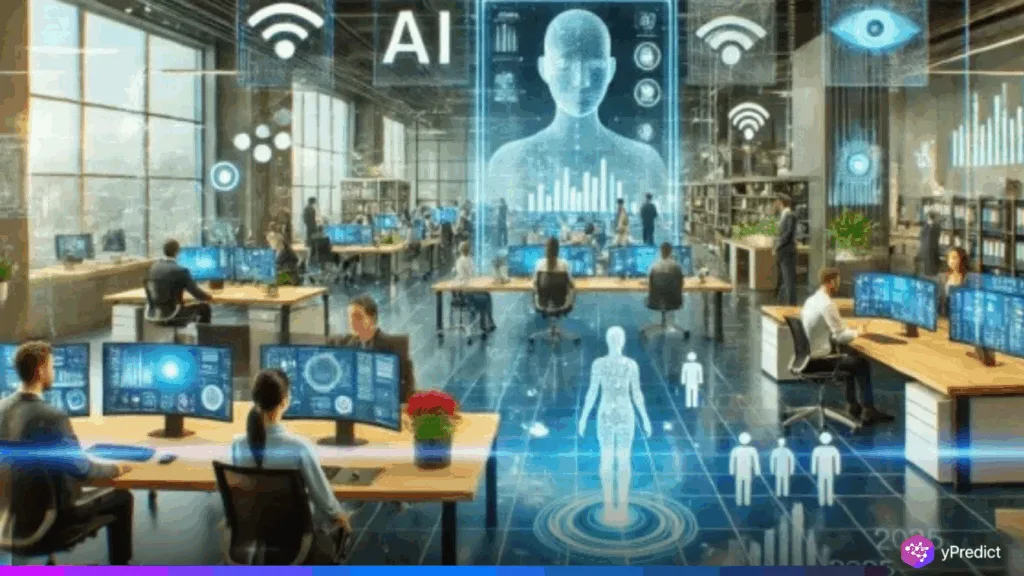
Artificial intelligence is causing concern within the UK over joblessness in the future. A recent social media upload revealed a poll showing that half of UK adults worry that artificial intelligence will take or essentially alter their jobs. Such fear is most dominant in workplace environments where AI has advanced to even eliminate workers in data analysis, answering customer calls, and doing administrative tasks. In reaction, the Trades Union Congress (TUC) in the UK led a demand to have workers more engaged in the decisions on how workplaces utilize AI. They also want to make sure that technology can help workers and not rather than remove them. This scene is an indicator of one of the main issues that the UK is currently facing: the positive side of AI and its subsequent effect on employment.
Growing Job Concerns Fueled by Data and History
The worry about AI in the UK fits within wider trends seen globally. The International Monetary Fund’s 2024 report predicted that 60% of white-collar jobs worldwide could face significant changes due to AI, with up to 30% potentially disappearing. Many of these job changes affect sectors with many workers. AI’s rapid improvement in automating routine office work is why so many feel uneasy. The TUC’s demand for worker input reflects an understanding that AI’s effects depend on decisions made by employers and policymakers in the UK.
This debate is not new to the UK. It echoes past tensions like those during the Industrial Revolution, when textile workers known as Luddites protested machines between 1811 and 1816. Contrary to popular belief, these workers were not against technology itself. They targeted machines to protest wage cuts and poor working conditions forced by factory owners. This historical context shows today’s fears about AI often stem from concerns about economic fairness and control over technology—not just the technology’s capabilities. The UK’s TUC advocating for worker involvement is a modern echo of these earlier demands for a voice in technological change.
Risk and Opportunity in the UK Labor Market
Recent studies show that AI will disrupt jobs in the UK as well as globally, but with complex effects. A report by AIMultiple from August 2025 projects that 15-25% of jobs worldwide could face significant disruption by 2027. Of those, 5-10% might disappear after considering new jobs created by AI. In the UK, this may translate to an annual loss of 60,000 to 275,000 jobs, mostly in entry-level white-collar roles.
Yet AI doesn’t only displace jobs. It can complement human labor, especially in tasks like decision-making and pattern recognition, where AI can support workers rather than replace them. This means some jobs will evolve, and new ones will emerge. Workers and employers in the UK need to focus on adapting through retraining and reskilling programs. The TUC’s push for policies that manage AI’s rollout reflects this need to make the transition smoother for UK workers.
Different voices in the UK express mixed views about the future. Some worry political leaders aren’t prepared with clear plans to fund workers displaced by the transition. Others believe practical trades, such as plumbing, will remain largely safe while many office jobs face risk. These viewpoints show the UK is wrestling with both hope and concern as AI’s effects become more visible.
Shaping AI’s Role in the Future of UK Work
The current debate in the UK also indicates that workers are at risk of AI and can benefit from it as well. The TUC emphasizes the significance of consulting workers in the application of AI in order to save jobs and create alternative employment opportunities. Without such a contribution, the danger is that technology will increase inequality and job insecurity within the UK.






